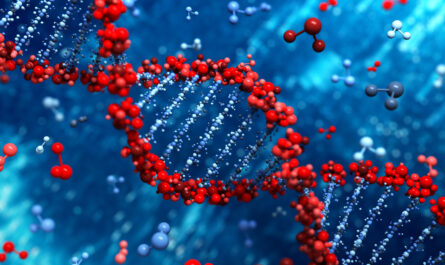In a significant development in the battle against malaria, scientists from The Hospital for Sick Children (SickKids) have successfully decoded how human antibodies protect against the malaria parasite. Malaria is responsible for claiming the lives of over 600,000 individuals worldwide every year. The researchers, in collaboration with the CMCF facility at the Canadian Light Source located at the University of Saskatchewan, utilized advanced technology to identify and understand the specific structures involved in targeting and combating the disease.
Elaine Thai, a researcher at SickKids, highlighted the primary question that drove their investigation—”what attributes make a protective antibody effective? What sets it apart from antibodies that may not provide sufficient protection or potency?” The team’s findings revealed that protective antibodies bind to a vulnerable site on the malaria parasite in a specific manner, facilitating the neutralization of the infection.
Presently, there are two approved vaccines for malaria. However, these vaccines are only effective for very young individuals, offer limited protection, and their efficacy declines over time. The insights gained from projects like this enable researchers to develop more advanced tools and strategies for healthcare interventions.
Elaine Thai is enthusiastic about unraveling the mysteries of the intricate molecules that influence human health. However, it is the broader impact of this research that fuels her passion. She explained, “When I consider the implications of this study, I feel like I have the potential to contribute to something greater and beyond my own self. This potential to make a meaningful contribution provides me with a guiding purpose.”
This breakthrough not only provides hope for malaria prevention and treatment but also highlights the significance of understanding the mechanisms by which human antibodies combat infectious diseases. By deciphering these mechanisms, scientists can pursue novel approaches to developing more effective vaccines, therapeutics, and interventions for a range of infectious diseases.
The global burden of malaria remains a serious concern, particularly in low-income countries where resources for prevention and treatment are limited. According to the World Health Organization, approximately half of the world’s population is at risk of malaria, with Sub-Saharan Africa being the most affected region. Children under the age of 5 and pregnant women are especially vulnerable to the severe consequences of malaria infection.
The findings from this research have the potential to revolutionize the fight against malaria by guiding the development of highly targeted interventions. By understanding the precise structures involved in antibody-mediated protection, scientists can engineer more potent and durable vaccines that can be administered to individuals of all ages.
The next steps for the research team involve further investigation into other infectious diseases and the mechanisms by which human antibodies provide protection. By expanding their knowledge in this field, scientists could potentially unlock answers to combat a range of diseases more effectively.
In conclusion, the decoding of human antibodies’ protective mechanism against the malaria parasite is a significant breakthrough in the fight against malaria. The insights gained from this research have the potential to drive the development of novel and more powerful interventions to combat malaria and other infectious diseases. The dedication and passion of researchers like Elaine Thai demonstrate the immense impact that scientific advancements can have on global health.
*Note:
1. Source: Coherent Market Insights, Public sources, Desk research
2. We have leveraged AI tools to mine information and compile it




